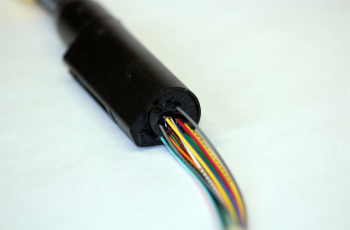SIPC 9030 RTV Silicone Sealant: The Best Choice and Technical Advantages of Automotive Connector Potting
In modern automotive and electronic devices, connectors play an important role as a key component in achieving signal transmission and current connectivity between electronic components. With the continuous development of automotive intelligence and electronics, the performance and reliability of automotive connectors are also becoming increasingly important. Connector FillingWhat is connector sealing?Connector sealing is a process that uses special adhesives or sealing materials to fill the connector inside. The main purpose of sealing is to form a protective film inside the connector to prevent the external environment (such as moisture, dust, corrosive substances, etc.) from entering the connector, thus preventing possible short circuits, corrosion or other damage.Typically, the sealant used in connector sealing has a high degree of adhesion and waterproof, dustproof, heat-resistant and other characteristics, so as to ensure that the connector can operate stably in the automotive, aviation, industrial equipment and other environments for a long time.Connector FillingWhy do connectors need to be sealed? Waterproof and moisture-proof Connectors are often exposed to moisture and moisture, causing short circuits or corrosion. Sealing effectively prevents moisture from entering the connector and keeps the internal electrical components dry, thus avoiding failure caused by moisture.Anti-vibration and impactConnectors in automotive or industrial equipment are often subjected to vibration and shock. Sealing provides an elastic protective layer that reduces mechanical stress and prevents the connector from loosening or breaking due to vibration, ensuring stable signal transmission.High and low temperature resistanceConnectors are prone to damage at extreme temperatures, and temperature differences cause metal components to expand or shrink, affecting contact performance. Sealing technology ensures that the connector remains stable in the temperature range of -60 ° C to 260 ° C, avoiding failure due to temperature changes. Improved electrical insulation performanceThe electrical contacts of the connectors are susceptible to current fluctuations. The seal provides excellent electrical…


